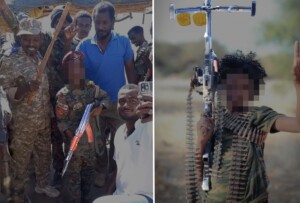Carter Center: ‘Sudanese youth not enough involved in decision-making’
More than two years after the ousting of the Omar Al Bashir regime, the role and voice of youth, who represent more than 60 per cent of the country’s population, remain important. Yet, a transition that side-lines youth risks losing the support it needs to succeed, says the Atlanta-based Carter Center in a recent report.
 Students at the University of El Geneina, West Darfur (UNAMID)
Students at the University of El Geneina, West Darfur (UNAMID)
More than two years after the ousting of the Omar Al Bashir regime, the role and voice of youth, who represent more than 60 per cent of the country’s population, remain important. Yet, a transition that side-lines youth risks losing the support it needs to succeed, says the Atlanta-based Carter Center in a recent report.
The special role that youth, particularly young women, played in fostering change is recognised in the August 2019 Constitutional Charter that establishes the framework for the transitional period.
In August 2020, the Sudanese Ministry of Youth and Sports invited the Carter Center to support the training of youth who would serve as independent, impartial observers of the transitional period and peace advisors in their local communities.
To identify youth who could be engaged and establish a baseline of perspectives, in March and April 2021 the Center conducted a survey in 500 locations across the country.
“The survey results highlight important trends among youth that are encouraging but also provide early warning to transition officials that there are gaps in how youth engage in and feel about the transition that, if not managed properly, could create significant obstacles to the transition,” reads the report, that was published on Thursday.
Although surveyed youth remain highly optimistic about Sudan’s trajectory, a majority are not currently engaged in national policymaking. While they are eager to support the transition, 42 per cent said that youth organisations like theirs have little to no voice in the transition process.
The Carter Center therefore recommends the Sudanese government to accelerate interaction with youth, and pro-actively provide channels for their engagement with government policymaking.
The government should establish institutions mandated by the Constitutional Charter that offer avenues for youth engagement should be established.
Furthermore, youth from both conflict and non-conflict areas should be included in peace-making efforts, and civil society stakeholders and independent commissions must be encouraged to play key parts in transitional justice.
The Carter Center is an NGO founded in 1982 by former US President Jimmy Carter and his wife Rosalynn, in partnership with Emory University, to advance peace and health worldwide.











 and then
and then